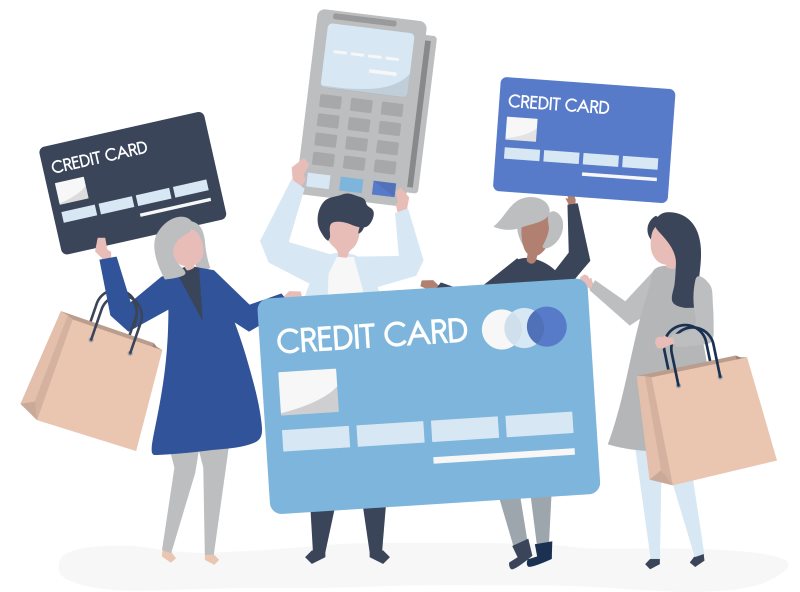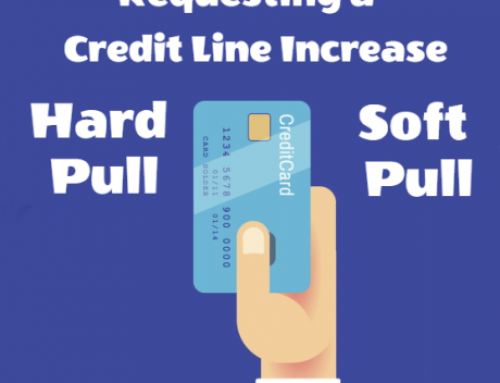Credit Repair Myths Exposed, Debunked, and Finally Put to Bed Forever! Here are 11 Real Credit Myths and Truths
Let’s finally stop the madness!
Credit repair has gotten a bad rap for way too long. There are way too many misconceptions about the real truth.
Like old folklore and old wives’ tales, these myths have been circulating longer than they ever should have.
Let’s set the record straight and get right into it!
Myth # 1. Credit repair is illegal
This is an absolute myth. Going through the data that the three credit bureaus reporting about you is your right by the law. Remember that these third-party credit bureaus are selling your information to your creditors.
You have the right to make sure that all the information that is being reported about you is 100% accurate.
The Verdict? Credit repair is 100% legal.
Why?
Because The Fair Credit Reporting Act is on our side
The Fair Credit Reporting Act is a law that is sanctioned by the Federal Trade Commission which essentially regulates the way consumer information is collected, shared, and even sold.
You can learn more here.
But the bottom line to this myth is that any information that is being reported about you must be 100% accurate across all three credit bureaus. If it is not 100% correct, you have the right to dispute the information with each credit bureau.
Once you dispute, by law, the credit agencies have 30 days to get back to you to either validate and prove that the information is yours or they must remove it.
Myth # 2. Negative items cannot be removed if they are really yours
This is related to Myth 1.
Let’s say you default on a credit card and the credit card company puts it out for collections. If the collection agency cannot prove and validate that the debt is actually yours, they must remove it from your credit report.
If the information being reported; like the amount owed is not 100% accurate, then it must be removed from your credit report.
This one is definitely a little bit tricky. We’re not saying that you should not pay off your collection and not own up to it. What we are saying is what the law states, and that is, in this scenario the collection agency must prove and validate pursuant to pursuant and in compliance to 15 USC 1692g Sec. 809 (b) of the FDCPA which states in so many words that they must tell you the exact amount of your debt, and the name of the creditor to which the debt is owed.
Debt that cannot be fully validated by your creditors or collection agencies is deemed unverified and must be removed from your credit report even if the debt or negative item that is being reported about you is yours.
See how To Remove paid (and unpaid) Collections.
Lastly, negative items that have exceeded the statute of limitations can also be removed even if they are yours.
Myth # 3. Credit repair companies are not ethical or legitimate
While it’s true that there are some unscrupulous credit repair companies in the industry, there are still some very professional, legitimate, and trustworthy credit repair companies that consumers can use to help them, repair their credit.
Thanks to many new laws that were created to protect consumers, many of the corrupt or deceitful companies have been weeded out. One such law is that credit repair companies cannot charge advance fees. They cannot charge you until they have actually started working on your account.
Who is the #1 legitimate credit repair company?
With over 30 years in the industry, Sky Blue Credit Repair has an A+ rating with the BBB with very few complaints.
If you don’t want to worry about going through credit repair on your own, we highly recommend that you sign up with Sky Blue today and take advantage of their ironclad 90-day money-back guarantee. You truly have nothing to lose but bad credit.
Myth # 4. Closing old credit accounts will raise your credit score
Here is another myth that can be a little bit misleading or confusing. If the old credit account is still open and has a low balance on it, you’ll definitely want to keep it open. The length of credit history and how long you have had your accounts open are part of the algorithm factor that the FICO score model uses and it makes up 15% of your credit score.
Closing old accounts can actually lower your credit score.
Myth # 5. Paying off a debt will remove (or dissolve) that negative item from your credit report
This is not entirely true unless you do a pay-for-delete. If you are considering paying off a debt directly with your creditor or one that is in collections, your best strategy is to contact either your creditor or collection agency and ask them if they will delete the negative item on your credit report if you pay off what you owe them.

You do not have the luxury of taking advantage of a pay-for delete and you pay down debt, in most likelihood the negative item will still stay on your credit report for seven years.
Another strategy to get the negative items deleted is to dispute them as inaccurate or maybe even outdated. We recommend that you be ethical if choosing to do this. We also recommend that you get help from a professional credit repair company like sky blue credit repair to help you to negotiate the deletion or with fixing any inconsistencies, misleading or inaccurate items on your credit report.
Remember that you have protection by the laws of the Fair Debt Collection Practices Act, where everything that is being reported about you across the three major credit bureaus must be 100% accurate or it must be removed off of your credit reports.
See more credit repair laws and loopholes credit repair laws and loopholes that also protect you as a consumer and that you can use right now to repair your credit.
Myth 6 is directly related to this last point.
Myth # 6. Consumers cannot successfully repair credit on their own
Hogwash I tell you!
We cannot stress this enough. The three major credit bureaus are third-party companies that are making money by selling your information to your creditors.
And it is your right by the law to examine your credit reports with a fine-tooth comb and find any inaccuracies or misleading information whatsoever.
And it is your right to have every single negative item validated and proved to you that it is actually yours.
If it is not validated or there are any inaccuracies whatsoever and all of the information is not 1000% accurate you can dispute with the three major credit bureaus and you can in fact repair your own credit.
Remember working on repairing your credit is not a one-time task. It is something that takes a little bit of time and it should be an ever-ongoing process. You should constantly be checking your credit report because inaccuracies or accounts that are simply not yours may appear at any time. If you do not have the time or feel like the task is too daunting, we suggest that you choose one of our highly recommended professional credit repair companies to help you inspect and scrutinize the information that is being reported about you.
If you want to try to take it on on your own, here are a few great resources to help you get started.
Here are 5 credit repair laws and legal credit loopholes that you can use right now to start getting negative items expunged off of your credit reports.
Here are some actionable strategies on how to remove paid collections from your credit report.
Here are 13 truly clever ways to raise your credit score quickly.
See how to write an effective dispute letter to exponentially increase your chances of getting those baddies removed ASAP!
Lastly, here are some great tips on how to execute a master plan of asking for forgiveness of the good old-fashioned goodwill letter.
Myth # 7. Checking your own credit report can hurt your score
This is another myth that is simply not true.
Pulling your credit report and checking your own credit score will have zero impact on your score.
You can actually pull your credit report and score as many times as you want without any penalty.
This was made possible for consumers so that they can keep an eye on their credit reports at all times to make sure there are no inaccuracies or recent fraudulent accounts or activity being reported on their credit reports.
When you pull your own report it is counted as a soft inquiry.
You should get into the habit of pulling your report at least twice a month.
You should note however that your soft pulls will show up in your credit history.
Also, note that creditors or lenders can make soft pulls to look at your credit situation in creditworthiness without your consent.
If a creditor or lender pulls your score with a soft pull it will not hurt your score.
You can learn more about hard and soft credit inquiries (pulls) here.
Myth # 8. Credit bureaus are government-owned and mandated
The 3 major credit bureaus are not government-owned or mandated. They are independent third-party standalone companies.
The government does however mandate on some levels how the credit agencies operate their businesses. For the most part, the government has created laws that protect consumers’ rights.
Some of these rights (thanks to the Fair Credit Reporting Act) is your right to access your credit report as many times as you like without penalty, your right to dispute any inaccurate information being reported about you with the major credit bureaus as well as creditors, and you’re right to seek damages if any of the laws have been violated and have affected you in any way.
Myth # 9. I never got the bill so I didn’t know I owed the bill. It’s not my fault
Umm Nice try!
Unfortunately, it is still your fault and your responsibility to pay your bill on time. Having bills or reminders sent to you from creditors or lenders is actually not mandatory but is actually a courtesy. The burden lies on you to know when your bills are due. This also holds true if you did not get a bill or reminder because you have moved and changed your address and your creditor sent the bill to your old address.
Myth # 10. Having a lot of credit cards will hurt your credit score
Having more than just a few credit cards will not hurt your credit score especially if you are responsible with managing the credit utilization ratios. Having a lot of cards and keeping the balance on all of them at 10% or below can actually raise your credit score.
Having more than just a few credit cards will increase the total amount of credit that is available to you. Using the card sparingly will help you to keep your credit utilization well. The lower your credit utilization the higher your score will go.
Properly managing several accounts can show creditors that you are responsible. Also the diversification of the different types of accounts you have ie. Having store cards, bank cards, and cards with credit lines can also help improve your score.
Also note that if you apply for several credit cards in a very short time period, you will have little effect on your credit score.
Myth # 11. Debt is debt | All debt is pretty much equal
No, this is absolutely not true. If you have a lot of credit card debt, say in the range of $50,000, then this is not the best debt to be carrying. But on the other hand, if you have $50,000 worth of debt which is the balance on your mortgage, this is more of a responsible and expected type of debt your credit score will reflect more positively because of it.
Related Reading
Learn how to remove paid collections from your credit report.
Here are some really cool credit repair laws and loopholes that you can use to get negative items deleted off of your credit report.
Check out these 13 unbelievably cool ways to raise your credit score. right away.
We show you step by step how to write a dispute letter that will increase your chances of success when disputing to the credit bureaus.
Also, see our article on how to write a goodwill letter complete with awesome template letters
Learn how getting added as an authorized user to a friend’s or family member’s credit card can help boost your score dramatically and quickly.
Now that you are on your way to better credit, let’s shoot for the moon! Learn how to get an 800 Fico credit score.
Not sure which company to choose to help you with your credit repair efforts? Our credit repair reviews are backed with first-hand case studies. We have actually used the services ourselves and have reported the findings to you making your life a little bit easier when it comes to making tough decisions.
We hope you have found value in this article. We here at CreditRepairCompanies.co have worked hard to publish 100% ethical information that we can build trust with our community.
Thank you for having trust in us!












Leave A Comment